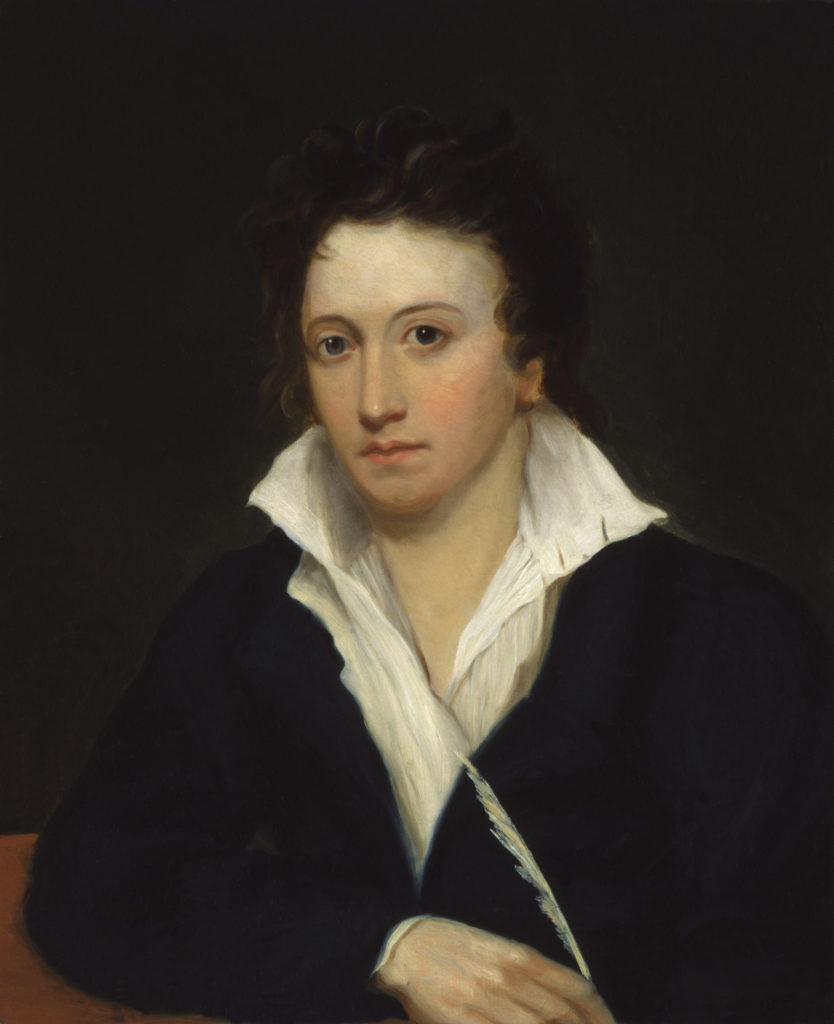Take heed: nothing below is spoken seriously:
No lasting harm has come from poetry
Except to the self-proclaimed poet’s dignity.
1
Meet young Percy: our aspiring pianist
Whose name has been sufficiently amended:
He’s in his prime when all life’s finest
Pleasures should arrive and wounds intended,
Dismissed or put aside. Confidence
Should permeate his every move and show
A man of influence. Failing that – affluence.
But can the truth be bought, and if so
Is it then a worthy cause to follow?
2
From a roadside ditch life is not so serene,
This was where he’d live if he tried
To test the limits of his wit. So keen
To make his mark, he fetishised
And towards the sky romanticised
Of future days when he would conjure unseen
The hidden force of what he fantasised:
Affection in a girl and like two birds
They’d share more than intimate words.
3
Four hot-blooded concepts – desire
And the quest, romance and the end of pain
Motivated. But clearly these require
An aesthetic that does not entail a vain
Attempt at ordinary worldly gain.
His band was named Toucani. Why, the gods
Don’t know. Nor does it matter. It’s plain
That it’s a bird – colourful – with a beak that prods
The earth and other food among the clods.
4
The band was a four-piece jazz quartet
With bass and drums and sax and piano,
They practised in his living room and kept
The windows open to maintain airflow,
Hoping to catch a subtle undertow
That would launch their bark from shore
Towards their ambition. But first they had to know
The limits – or they would be shown a door
Which is not a good start: indeed quite poor.
5
One disclaimer: The rhythm of this tale
Has not Byron’s flow or Swinburne’s mystic art
Nor Coleridge’s tongue; no Wordsworthian dale
Midst these lines. Do not rummage for part
Of a sonnet for Shakespeare this definitely is not.
As for Saint Eliot leave him be. I brush aside
The moralists. And the modernists? What?
I feign ignorance. This I do not excuse beside
A greater folly – weakness I cannot hide.
6
Soft though a woman’s breast may be, mine’s hard
And forever locked to tender touch until
Should come the one who finds within the bard
And sets me free. Until then, I drink my fill
And sing to myself. But now companions three
I, Percy, have. Piano fingers fly, sax
Soars, drums tappity-tappity smash, and the bass:
A rock on which the rest build mighty facts
Of music: scales, modes, chords en masse.
7
After several months of warmup practise
Honing technique to be set on stage,
Toucani compiled a playlist
Suited for pub, cafe, or garage.
A focused search and fine-tuned scouring
Yielded a post: a corporate Xmas party
Was the deal; sudden overpowering
Swells surged within pianist Percy,
He likened the task to a molehill towering
8
Above an ant. A life’s work, destiny
Lay ahead. Glory, fame, a choice
Of women – the current pool was empty:
Drier than this poem. No female voice
Addressed with nervous air, no gleaming eyes
Did sneak a mysterious glance. Now
I do not ask for sympathy. Despise
Me not! Place all your doubts in escrow!
9
Kind reader, perhaps you may now notice
That this Percy might be me. You’re right,
I summarily confess what my focus
Is here. Please do not take early flight
If sometimes I use ‘I’, sometimes ‘me’;
Sometimes ‘Him’, sometimes ‘we’. Third person
Is neutrality. But as with all thoughts subjectively
Placed on a page – they are uncertain –
Spirits run high and emotions: free.

10
Our debut set for one week’s future time,
My piano tuned (although I use a keyboard
On the road), endless practise was a crime
That had to be enforced. I’d stored
A week of annual leave for this my hour
Cometh the man! The job was set aside:
A minor public servant does not chain
His ankle to the office chair. Deride
me not if this my work I do disdain.
11
Don’t get me wrong. Layered bureaucracy
Exists to order, sign and abate
The people’s will. “I stood firm and fearlessly
Gave advice” – that’s all you need to state
When questioned. The out of office message:
“Do not jeer. In but a week I shall return.
Jones: In yonder fridge there is a sandwich,
It is now yours – no more my concern.”
12
Despise me not, deride me not if meter
This poem doesn’t have. If words are order out
Forgive at once indulgence; to teeter
On the brink of expression only to shout
A heresy: Est mea culpa semper,
So it was then, so it is today. Tenses also
Will be off – sometimes I’ll speak of past;
Sometimes – present. Future? I don’t know
Nor dare to guess it will my dreams outlast.
13
But back to practise time. After midnight
Percy heeded neighbours nearby sleeping,
He held his silence until the morning light
Diffused his Apollonian beams. Leaping
upon the piano post-dawn was his sweeping
Sign to newly blooded day. Arise
Sir Percy! At the world toss bold streaking
Octaves – it’s not too early for surprise!
14
The neighbours disagreed. At once across
The road a hue was raised, a cry did follow
From next door. Thus Percy stopped. Loss
Of practise rights would surely mean sorrow,
And sorrow he had only known. Tomorrow…
One final day to practise with the band,
To know by instinct if he could follow
The arcane progressions and build a grand
Facade to launch his name across the island.
15
Australia is but bounded by the sea,
A country blessed by sun and lapped by surf,
We only hear of war from those who flee;
Who impose themselves upon our sacred turf.
We’ve boundless plains to share our worth
With those who come by plane. An ordered queue
Awaits for those who disembarked near Perth:
A lovely ocean villa is for you!
A villa warm and bright in nature too!
16
For shame! O land of shameless shame. Britain
Yet marvels at her best and fairest child,
A child of light, a child behind the screen,
Yet still united to the Queen whose mild
Temperament belies a land defiled!
Was this the cause of Percy’s tale of woe?
Surely no, it was simple: lack of wild
Love and the benefits it brought. So:
Let’s not dwell on why he plays the piano.
17
He spent the hours noodling away
At a theme called ‘Longing’. Melancholy
Also introduced its strain. We could say
That his fingers each had tiny brains where ‘golly’
Had no place in thought. It was a holy
Hour: When the mind is free to forget all
That puts it in a miserable and sorry
Frame, the heart can sound its clarion call
To joy from the hidden treasure hall.
18
Some say music is the highest art,
It once was true before the power of speech
Could let us deck our thoughts in words apart
From sensation. Grunts and groans could teach
Us how to trust and how to flee and beseech
Mercy at the chieftain’s feet. The inner drum
That beats the primal clock, the whispering creek,
The baby’s heartfelt cry for its mother’s hum
Of comfort: the past was found in Percy’s strum.
19
The runs and trills unlocked a higher state
Of nature, he wandered somewhere on a cloud –
Not lonely – it was not possible to satiate
His lust for a new and marvellous chord:
All Self was banished to another world,
His ears and hands each had their own free will,
New transcendent melody unfurled
And reached as far as Olympus’ snowy hill
Where Erato dropped her lyre and sat still.
20
He played and played – at last his back was sore,
Helios was tired too and slunk away.
That night the Moon refused to rise and pour
Her stolen but rejuvenating ray
Of hope that resigns workers to the day.
He slouched, his knuckles dragged a lonesome ballad,
At last he knew he had no more to say,
His muse had left, his hairy face was ragged,
What once was music – turned to epic salad.
